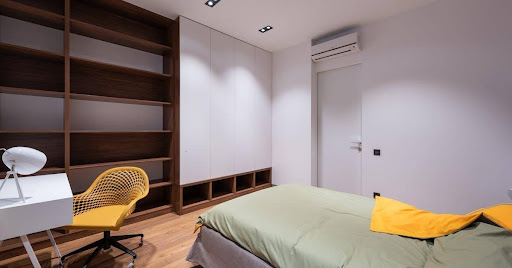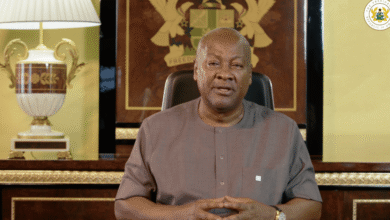Embracing Functional Living Amid Changing Trends

In recent years, we’ve witnessed a remarkable transformation in the way Ghanaians approach consumption. Gone are the days when flashy brands and extravagant purchases defined status. Today, the modern Ghanaian consumer prioritizes functionality and practicality, reflecting a broader global trend toward mindful living. This shift isn’t just about personal preferences; it’s reshaping markets and influencing businesses across the nation.
As we delve into this evolution, we’ll explore how economic factors, cultural changes, and technological advancements are driving this new consumer mindset. From sustainable choices to minimalism, Ghanaians are embracing a lifestyle that values quality over quantity. Join us as we uncover the nuances of this shift and what it means for businesses and consumers alike.Â
Understanding The Modern Ghanaian Consumer
The modern Ghanaian consumer embodies a shift towards functionality and practicality, greatly influenced by various cultural and demographic factors.
Cultural Influences on Consumer Behavior
Cultural values significantly shape consumer choices in Ghana. Preferences lean towards products that promote health and wellness. For instance, bariatric supplement vitamins increasingly attract attention as individuals prioritize nutritional needs for a healthier lifestyle. Additionally, there’s a growing interest in sustainable and locally sourced products, reflecting an inclination towards environmental responsibility. Traditional values also play a role in decision-making, with family and community opinions influencing purchases. This cultural backdrop fosters an environment where quality and sustainable choices reign supreme.
Demographic Changes and Trends
Demographic shifts play a crucial role in defining the modern consumer landscape in Ghana. Urbanization leads to increased access to information and diverse product offerings. Younger generations, particularly millennials and Gen Z, drive the demand for practical solutions, such as mid calf socks with grips, which blend utility with comfort. Ageing populations are also contributing to the market, resulting in a rising interest in health-oriented products. These demographic trends indicate evolving consumer preferences that businesses must consider to stay relevant and compete effectively.
The Shift Toward Functional Living
The modern Ghanaian consumer increasingly prioritizes functionality over luxury. This shift embodies a move towards a more practical and sustainable lifestyle.
Defining Functional Living in Ghana
Functional living in Ghana emphasizes practicality and health. Consumers seek products that enhance their well-being and support health management. This focus on health aligns with local cultural values, fostering an inclination toward sustainable and efficient solutions. Products that serve multiple purposes and provide long-lasting benefits gain popularity. Consumers prefer goods that integrate seamlessly into their daily lives while promoting overall wellness.
Key Factors Driving the Shift
Several factors drive this shift towards functional living. Economic challenges, including inflation and market instability, compel consumers to make cost-effective choices. Cultural changes highlight the importance of wellness and community, influencing decisions towards health-focused items. The rise of technology also facilitates access to information about sustainable products, making options like mid calf socks with grips popular for their practicality and comfort. Additionally, urbanization fosters an environment where younger generations seek convenience and value, further solidifying the importance of functional living in Ghana.
Consumer Preferences in Ghana

Photo by Getty Images on UnsplashÂ
Consumer preferences in Ghana have evolved significantly, emphasizing functionality and sustainability over luxury.
Essentials vs. Luxuries
Modern Ghanaians prioritize essentials over luxury items. This shift underscores the practical needs of our daily lives. Additionally, there’s increased demand for everyday items that enhance lifestyle, reflecting our collective desire for comfort and utility. Businesses that align with these preferences capture the attention of consumers seeking value in their purchases.
Sustainability and Ethical Consumption
Sustainability influences many of our purchasing decisions. We actively seek products that minimize environmental impact and support ethical practices. The rise in demand for locally sourced items demonstrates our commitment to promoting sustainable economies. Consumers now favor brands that emphasize ethical sourcing and production methods. Products like bariatric supplement vitamins are often scrutinized for their environmental footprint, driving us towards brands that prioritize sustainability. This heightened awareness encourages businesses to adopt responsible practices, ensuring that our purchases reflect our values of health and sustainability.
The Impact of Technology
Technology significantly reshapes consumer behavior in Ghana, facilitating a shift towards functional living. Digital platforms allow us to access essential products, emphasizing practicality and health.
Digital Shopping Trends
Digital shopping trends reflect our growing reliance on online platforms for essential purchases. Websites and mobile apps offer convenience, enabling quick access to various wellness products. Faster internet connectivity and increased smartphone usage simplify online shopping, allowing us to compare prices and make informed decisions. E-commerce growth highlights our preference for essentials over luxury items, as we prioritize items that enhance well-being and functionality.
Social Media Influence on Buying Decisions
Social media influences our buying decisions by providing instant access to product information and reviews. Platforms like Instagram and Facebook showcase functional products, aligning with our practical needs. Influencers often promote health-focused items, reinforcing our preference for items that support a sustainable lifestyle.Â
Challenges Faced by The Modern Ghanaian Consumer
Modern Ghanaian consumers encounter multiple challenges that affect their shift towards functional living. Understanding these difficulties helps us grasp the changes in consumer behavior and preferences.
Economic Factors and Their Effects
Economic factors significantly impact purchasing decisions among Ghanaians. Inflation rates, limited disposable income, and rising costs of living force consumers to prioritize essentials. Many opt for affordable products over luxury items. For example, there’s increased interest in bariatric supplement vitamins due to their health benefits, which aligns with the growing focus on wellness. Budget constraints often lead to trade-offs, compelling consumers to make informed choices that balance quality with cost.
Accessibility and Availability of Products
Accessibility to essential products shapes buying patterns in Ghana. Consumers face challenges in locating everyday items that meet their practical needs. While the demand for products like mid-calf socks with grips rises, availability remains inconsistent. Geographic disparities and limited distribution channels hinder access to functional items, deterring consumers from making purchases. Online platforms offer potential solutions, yet not all consumers have equal internet access or digital literacy, complicating the shopping experience. For further insights into consumer behavior, check out the World Bank’s report on Ghana’s economy.




